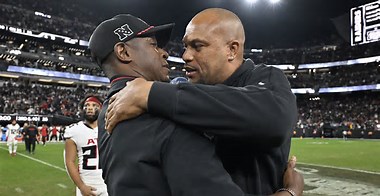The NFL’s decision to remove the “End Racism” message from the end zones at the Super Bowl is a glaring misstep in its Diversity, Equity, and Inclusion (DEI) efforts. This move sends a contradictory message to fans and players about the league’s commitment to addressing social justice issues. By eliminating such a visible statement, the NFL risks undermining the progress it has made in promoting equality and combating racism within the sport. The decision raises questions about the authenticity of the league’s DEI initiatives and whether they are more performative than substantive. As a significant cultural influencer, the NFL has a responsibility to lead by example, and removing this message could be seen as a retreat from that role.
The National Football League (NFL) has been at the forefront of the conversation on diversity, equity, and inclusion (DEI) in sports, especially in recent years. However, the decision to remove the ‘End Racism’ message from the end zones at the Super Bowl has sparked a debate on the sincerity and consistency of the league’s commitment to these values.
During previous seasons, the NFL included social justice messages like ‘End Racism’ and ‘It Takes All of Us’ in the end zones, aligning itself with the broader movement for racial equality. These messages were not just symbolic; they represented a crucial step in acknowledging the league’s potential to influence societal change and promote inclusivity and equity.
The Super Bowl is arguably the most-watched sporting event in the United States, and the decision to drop such a prominent message during this high-profile game sends mixed signals. Critics argue that the removal undermines the league’s previous efforts and suggests a retreat from its stated commitment to addressing racial issues.
This decision comes at a time when sports organizations are increasingly expected to take clear stances on social matters. Fans and players alike are looking for genuine action and consistency from the NFL, not just performative gestures. The absence of ‘End Racism’ in the Super Bowl end zones may give the impression that the league is prioritizing appeasement over advocacy.
Moreover, the NFL’s decision raises questions about the influence of external pressures, whether from sponsors, fans, or political entities. It challenges the perception of the NFL as a leader in the DEI space and highlights the complexities of balancing commercial interests with social responsibility.
To re-establish trust and demonstrate a firm commitment to DEI values, the NFL might consider more transparent communication about its decisions and future plans. Engaging players, fans, and community leaders in open dialogues could help shape a more inclusive strategy moving forward.
In conclusion, while the removal of ‘End Racism’ from the Super Bowl end zones may seem like a small change, it carries significant weight in the realm of public perception and social responsibility. The NFL must reaffirm its dedication to DEI by ensuring that its actions consistently reflect its stated values, thereby maintaining the trust and support of its diverse audience.

